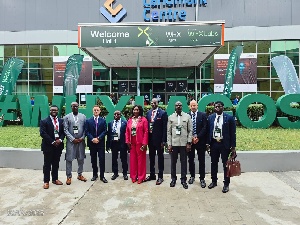Business News of Tuesday, 27 May 2025
Source: www.ghanawebbers.com
Editorial: Hybrid energy approach required for sustainable power
Net-metering allows solar panel users to send excess electricity to the grid. In return, they receive credits on their power bills. This system helps households and businesses lower energy costs. It also reduces reliance on fossil fuels.
The Public Utilities Regulatory Commission (PURC) has published a tariff framework for this program. Mr. Appiah confirmed that meters are being manufactured now. Distribution of these meters is expected to start by September 2025.
This rollout is part of Ghana’s renewable energy plan. The goal is to increase clean energy capacity from 42.5 megawatts (MW) in 2015 to 1,363.63 MW by 2030. This includes 1,094.63 MW from grid-connected systems.
The initiative will help Ghana meet its Nationally Determined Contributions (NDCs) under the Paris Agreement. The Renewable Energy & Energy Efficiency B2B Expo was recently held by the Energy Service Centre (ESC) of AGI. The theme was ‘Powering Ghana’s Industry through Sustainable Energy.’
Rising energy costs and inconsistent supply make it crucial for Ghana to find reliable energy sources. A hybrid approach is seen as the best way to ensure adequate power generation for the nation.
To achieve a continuous, affordable, and sustainable power supply, a balanced strategy is needed. Solar and other renewable sources should be utilized effectively for cleaner energy transition.
This hybrid approach reduces pressure on the national grid and promotes energy independence for businesses. To encourage business transitions, clear incentives must be provided, including tax rebates and low-interest financing for renewable projects.











